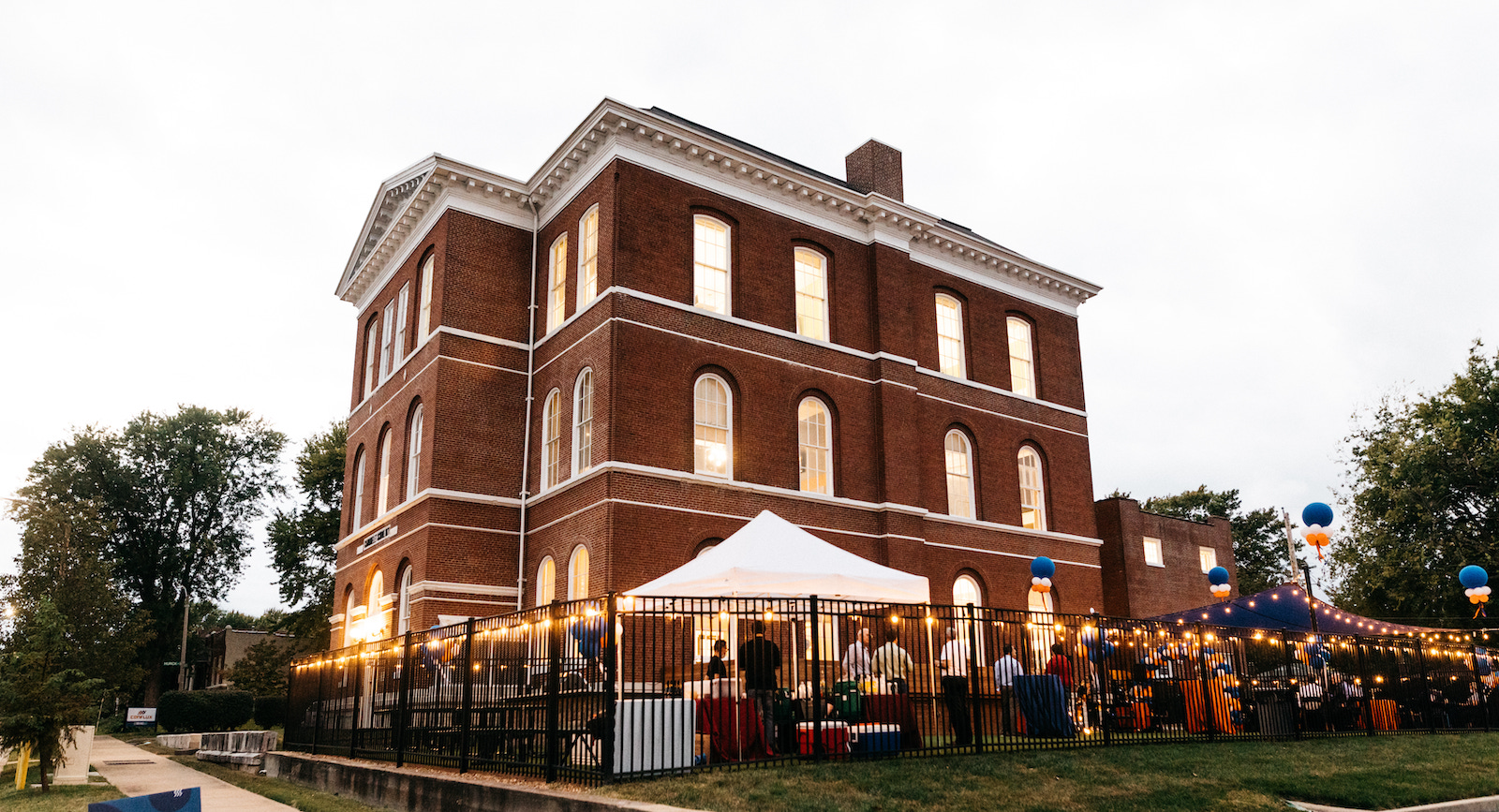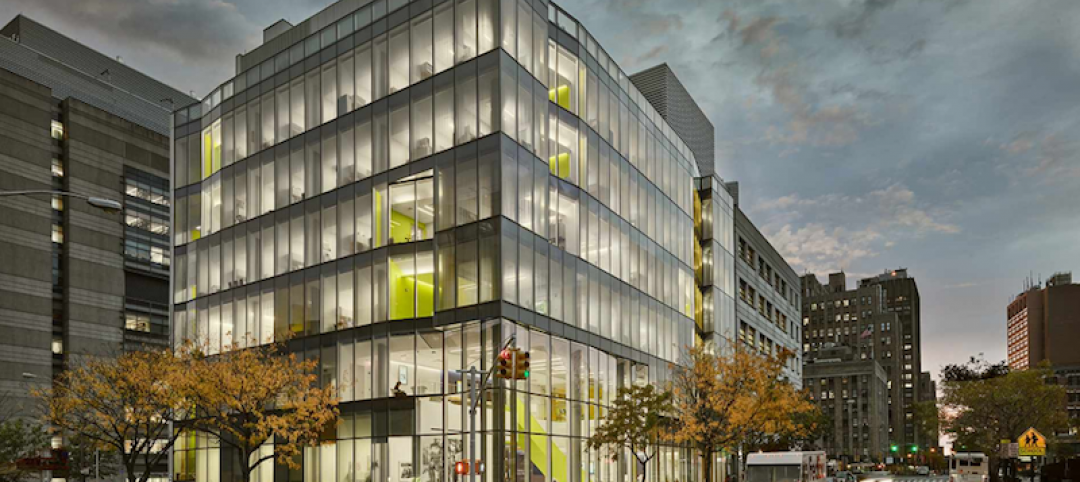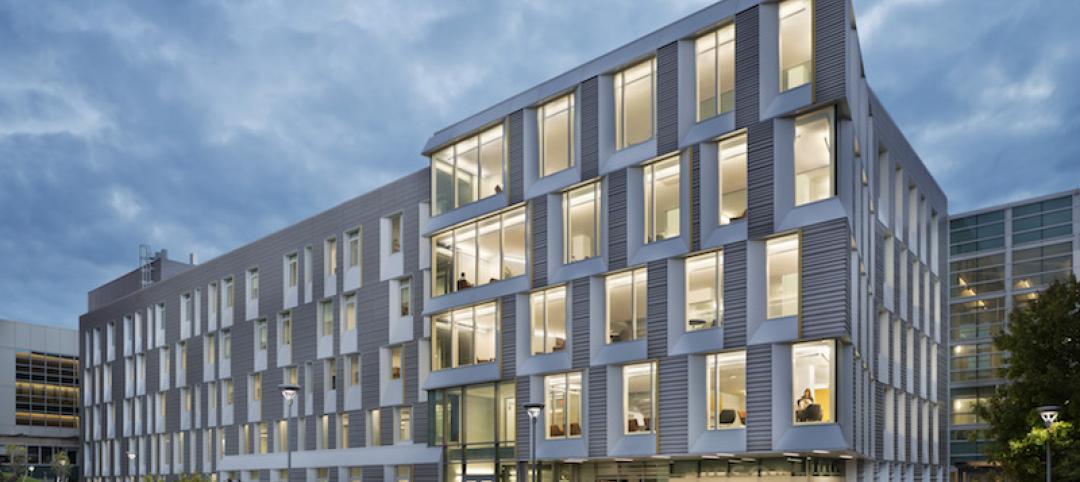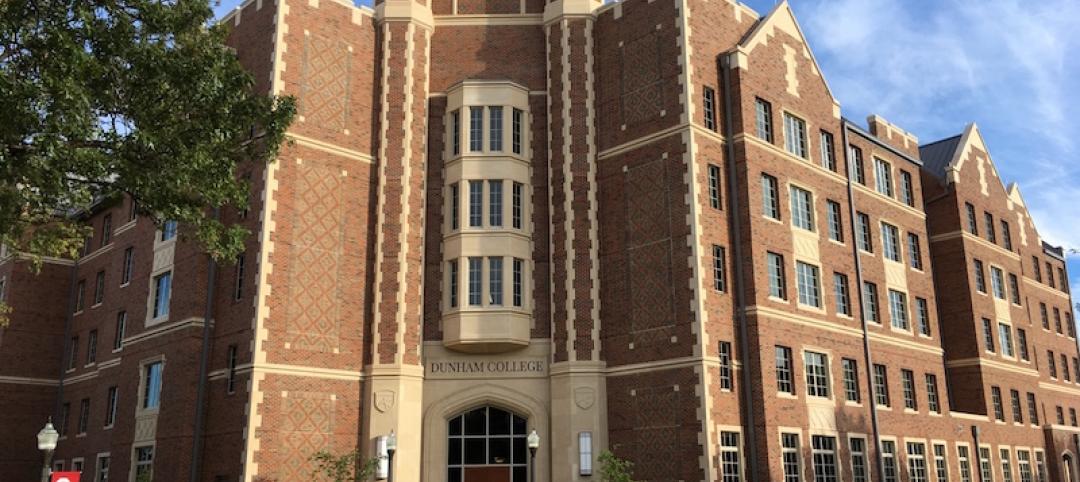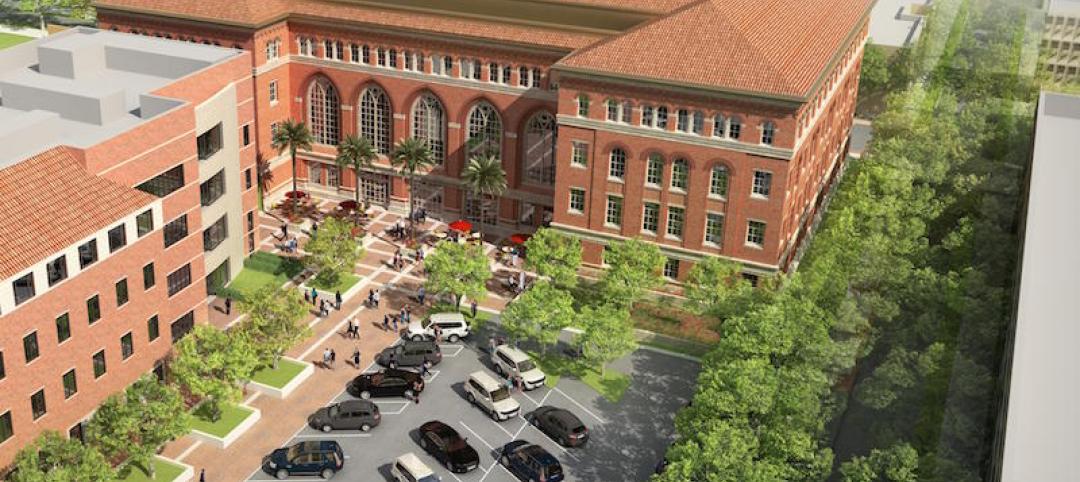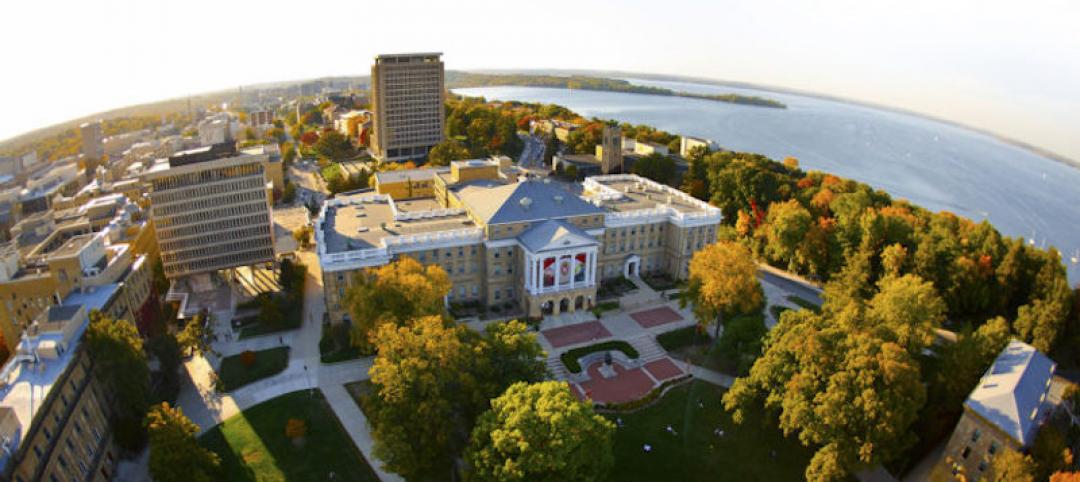In 1871, The Carondelet School, designed by Frederick William Raeder, opened to educate more than 400 children of laborers and manufacturers in St. Louis. It operated for a century before closing in 1976; it subsequently served as a private Christian school before going dark again in the 2000s.
The building is getting a second lease on life, as it has undergone a $2 million renovation by goBRANDgo!, a marketing firm for the manufacturing and industrial sectors, which moved its headquarters from Benton Park, as well as Conflux Co-Learning, goBRANDgo!’s nonprofit incubator, for what’s being called the nation’s first co-learning space where manufacturers and distributors can collaborate and share best practices.
GoBRANDgo! acquired the school in 2019 and launched Conflux a year later, soon after which it started hosting roundtables, webinars, and sharing information. The 26,000-sf Conflux Co-Learning building, with three stories and a basement, officially reopened last November, although some construction had yet to be completed at presstime. Financed with SBA 504 loans for small businesses, the renovation is adding an innovation lab, recording studio, and six teleconference rooms. GoBRANDgo!’s target is for Conflux Co-Learning to have 30 members by the end of 2022, and 100 within the next three years, according to Brandon Dempsey, a Partner with goBRANDgo!.
Right now, Conflux’s educational and collaborative programming is open to the industry. When BD+C spoke with Dempsey in mid-December, Conflux Co-Learning had just conducted a roundtable of 18 manufacturers and distributors on the topic of labor shortages. goBRANDgo! expected to have its first 10 members signed up by February 2022. Membership is $1,000 per month, and is currently confined to midsize companies with annual revenue of between $25 million and $250 million. Dempsey says that because the member companies, by and large, won’t compete, they will be freer to share information about how to drive sales, reduce waste, decrease costs, diversify their customer base, roll out new products, and cope with economic fluctuations.
Conflux Co-Learning also plans a series of guest speakers on a variety of topics relevant to its members’ businesses and growth. The center’s programming is being managed by Matt Menietti, goBRANDgo!’s Executive Director, who most recently served as Director of Innovation & Entrepreneurship for the St. Louis Regional Chamber.
In an interview with Entrepreneur Quarterly, Menietti characterized many of the companies that goBRANDgo! works with as “bedrocks of their communities.” The goal of Conflux Co-Learning, he explained, is “to bring these players together and provide them with meaningful content, relationships, and a community of support to help them thrive.”
Menietti said his organization has had discussions with industry leaders about workforce development. Dempsey elaborates that goBRANDgo! intends to launch an apprenticeship program that members could avail themselves of within the next two years.
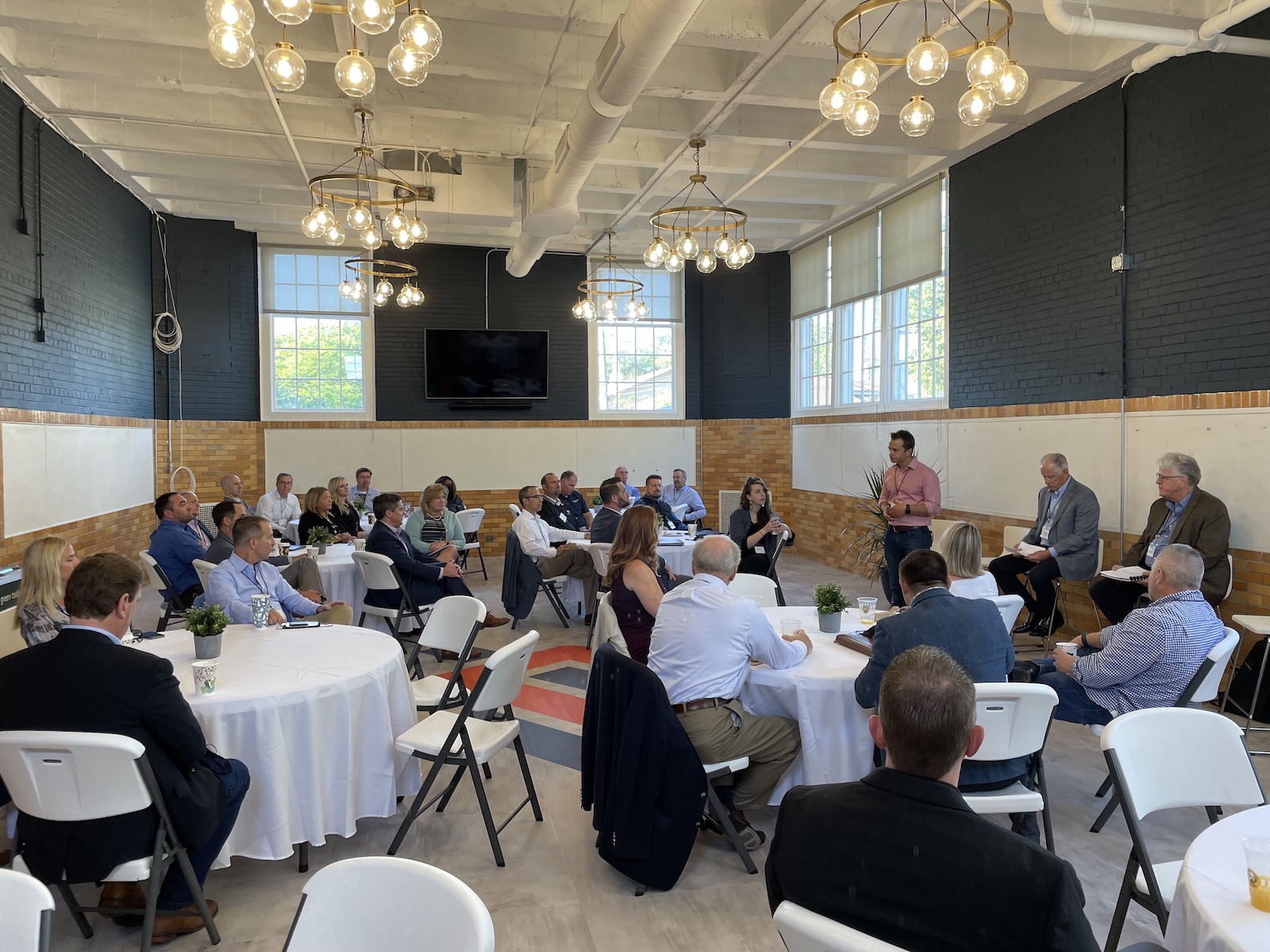
The team that renovated The Carondelet School included Eversoldt & Associates (architect), ReSTL Development (developer and CM), and PAP Engineering (engineer). The scope of the project included repainting the interior and upgrading some of the electrical and HVAC systems. The renovation focused on repurposed and reclaimed materials: Conflux recovered more than 50 tables and chairs from the demolition of the Missouri Botanical Gardens’ Ridgeway Visitor Center, and constructed more tables using reclaimed building materials from that demo.
The biggest part of the renovation, says Dempsey, was removing seven layers of flooring—held down by 650,000 nails, staples, and brads—and restoring the building’s hardwood flooring, more than 2,000 sf of which was built by hand.
Dempsey says he’s getting emails “every day” from companies that want to become Conflux members. The owner of a large, local pasta supplier recently toured Conflux Co-Learning and thought his company could hold its annual meetings there. If Conflux hits 50 members within a reasonable timeframe, Dempsey says he’ll know the concept is working, at which point he would consider expanding Conflux Co-Learning to other manufacturing/distribution hubs like Kansas City, Denver, and Nashville.
Related Stories
University Buildings | Nov 28, 2017
FXFOWLE and CO Architects collaborate on Columbia University School of Nursing building
The building has a ‘collaboration ribbon’ that runs throughout the building.
Sports and Recreational Facilities | Nov 27, 2017
The University of Memphis unveils the new home of the men’s basketball program
The Laurie-Walton Family Basketball Center will provide a strong commitment to donor and VIP cultivation.
Adaptive Reuse | Nov 10, 2017
Austin’s first indoor shopping mall becomes Austin Community College’s new digital media center
Renovation of the defunct mall represents Phase 2 of ACC’s $100 million adaptive reuse project.
University Buildings | Nov 6, 2017
A reconstructed building sets the standard for future rehabs at Cornell
Early AE collaboration played a major role in moving this project forward efficiently.
University Buildings | Oct 13, 2017
The University of Oklahoma receives its first residential colleges
The residential communities were designed by KWK Architects and combine living and learning amenities.
University Buildings | Oct 12, 2017
USC to debut new bioscience center next month
The building is designed to maximize recruitment and interaction of scientists and researchers.
University Buildings | Oct 12, 2017
The Center for Wounded Veterans is a first for a university campus
The Chez Family Foundation Center for Wounded Veterans in Higher Education is the first building of its kind on a U.S. college campus.
University Buildings | Oct 10, 2017
A 1920s cheese factory is now a university science building
Almost 15,000 sf of space was added to the original, four-story building.
Sustainability | Oct 9, 2017
New Arizona State University building will reach triple net-zero performance
The science and research complex will include an atrium biome filled with plants and water.
Higher Education | Sep 18, 2017
Campus landscape planning of the future: A University of Wisconsin-Madison case study
Recognizing that the future health of the campus and lake are interdependent, this innovative approach will achieve significant improvements in stormwater management and water quality within the university’s restored, more connected network of historic and culturally rich landscapes.


